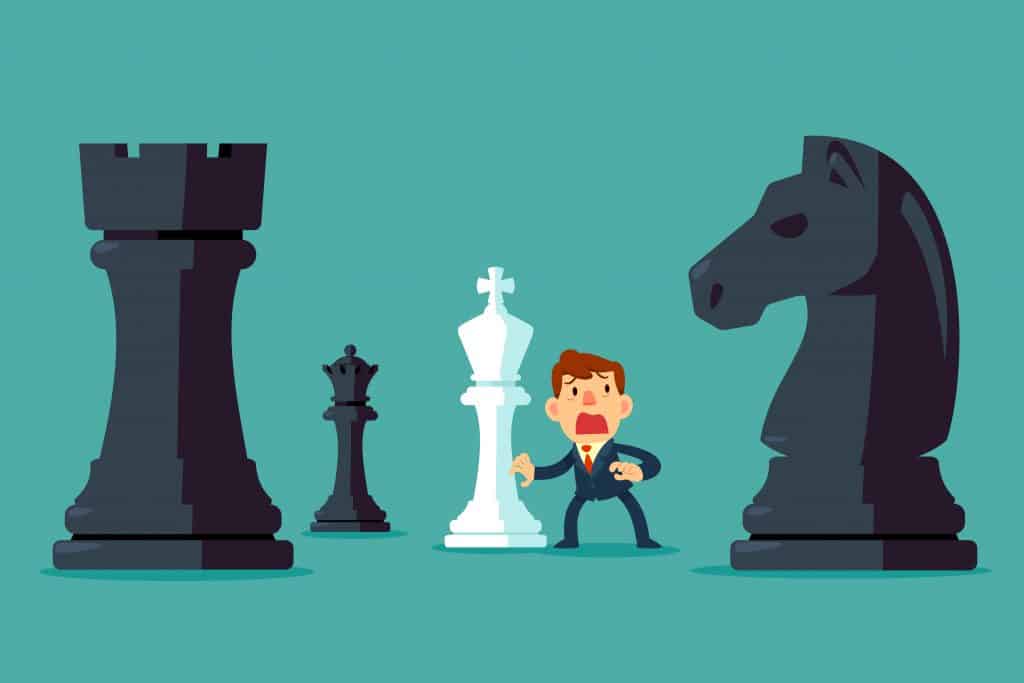- Trading
- Trading
- Markets
- Markets
- Products overview
- Forex
- Commodities
- Metals
- Indices
- Shares
- Cryptocurrencies
- Treasuries
- ETFs
- Accounts
- Accounts
- Compare our accounts
- Our spreads
- Funding & withdrawals
- Volume rebates
- Open account
- Try free demo
- Platforms & tools
- Platforms & tools
- Platforms
- Platforms
- Platforms overview
- TradingView
- MetaTrader 4
- MetaTrader 5
- MetaTrader Copy Trading
- cTrader
- cTrader copy trading
- Mobile trading platforms
- GO WebTrader
- PAMM
- Premium trading tools
- Premium trading tools
- Tools overview
- VPS
- Genesis
- Education
- Education
- Resources
- Resources
- News & analysis
- Education hub
- Economic calendar
- Earnings announcements
- Help & support
- Help & support
- About
- About
- About GO Markets
- Our awards
- Sponsorships
- Client support
- Client support
- Contact us
- FAQs
- Quick support
- Holiday trading hours
- Maintenance schedule
- Fraud and scam awareness
- Legal documents
- Trading
- Trading
- Markets
- Markets
- Products overview
- Forex
- Commodities
- Metals
- Indices
- Shares
- Cryptocurrencies
- Treasuries
- ETFs
- Accounts
- Accounts
- Compare our accounts
- Our spreads
- Funding & withdrawals
- Volume rebates
- Open account
- Try free demo
- Platforms & tools
- Platforms & tools
- Platforms
- Platforms
- Platforms overview
- TradingView
- MetaTrader 4
- MetaTrader 5
- MetaTrader Copy Trading
- cTrader
- cTrader copy trading
- Mobile trading platforms
- GO WebTrader
- PAMM
- Premium trading tools
- Premium trading tools
- Tools overview
- VPS
- Genesis
- Education
- Education
- Resources
- Resources
- News & analysis
- Education hub
- Economic calendar
- Earnings announcements
- Help & support
- Help & support
- About
- About
- About GO Markets
- Our awards
- Sponsorships
- Client support
- Client support
- Contact us
- FAQs
- Quick support
- Holiday trading hours
- Maintenance schedule
- Fraud and scam awareness
- Legal documents
- Home
- News & Analysis
- Trading Strategies, Psychology
- Art of War and Trading: Part 2
News & Analysis兵者,诡道也。
All warfare is based on deception.
Investment is, in essence, a game of intelligence and psychology, and the importance of calculation is behind the first two elements.
At first, many beginner traders misunderstand what it means to be a profitable trader. Most assume that as long as they are good at mathematics or a similar field of expertise, that one day they will stumble upon the ultimate strategy, the “Holy Grail” so to speak and will make enormous profits with 100% accuracy. Unfortunately, this is generally a common misconception of people who have less than three years of investment experience.
Like any other natural skill or talent, being good at mathematics is just a tool when it comes to trading. Otherwise, those research teams and think tanks with hundreds of people working together would have already figured out the mathematical models that earn billions every day.
The tricky part in both battlefields of war and financial charts is that you can never fully predict how your enemy will react or which direction price may choose to go.It is like playing chess: how can you predict your opponent’s move? You can’t rely on maths alone. You must gain an understanding of their psychological tendencies and playing style. Even so, the outcome is only highly probable moves, and nothing is guaranteed.
故能而示之不能,用而示之不用,近而示之远,远而示之近。
Hence, when able to attack, we must seem unable; when using our forces, we must seem inactive; when we are near, we must make the enemy believe we are far away; when far away, we must make him believe we are near.
Once again, consider the market as your chess opponent. The methods listed above of tactical deception fall into this category. As with a battle taking place on a chessboard, there a common phenomenon that often occurs in trading: price rising along with bad news, and price dropping with good news. It’s the markets way of keeping everyone guessing while making moves that are in harmony with the general supply and demand.
So when we compare Sun Zhu’s teachings to modern-day investing philosophies, fundamentally, nothing has changed. For example, the market may deliberately create a sense of fear around a particular product to make it appear like the product is losing value when in reality there is not a great deal to substantiate the claim. Subsequently, you may end up selling at a loss to prevent the perceived threat of further financial ruin. And this is another example of what Sun Zhu refers to after saying “when far away, the opponent (i.e., the market) must make us believe they are near,” and vice versa.
利而诱之,乱而取之,
Hold out baits to entice the enemy. Feign disorder and then crush him.Another classic tactic used by the market.
Look at what happened during the recent Turkey turmoil for example. Virtually all that happened was nothing more than recrimination between the US and Turkey, but look at how this perceived uncertainty caused the majority of non-related currencies to tumble. EURUSD, although perhaps more exposed than others dropped 400 pips in the short period following the event. However, once the media lost interest and began tapering off their reports, the price took a mere two weeks to retreat to previous levels. It is akin to the market launching a blitzkrieg attack with its cavalry troops.
实而备之,强而避之,
If the enemy is powerful, just prepare yourself, and evade him.Luckily in trading, we have a simple way to evade the enemy by quietly sitting back and not taking any trades. Furthermore, if you already have open positions on hand, you can use stop-losses to help escape should the invading force (market) move against you.

怒而挠之,卑而骄之,
If your opponent is of choleric temper, seek to irritate him. Pretend to be weak, that he may grow arrogant.攻其无备,出其不意。
Attack him where he is unprepared, appear where you are not expected.此兵家之胜,不可先传也。
These are military advices leading to victory, must not be divulged beforehand.

Many traders, especially beginner traders have experienced the irritating sting of the unforgiving markets. For example, a market is capable of moving sideways in very narrow ranges for extended periods of time, frustrating those anticipating a breakout.
Particularly in a sideways market, after losing once or twice, a beginner is likely to feel angry and seek revenge. Therefore, if you can’t control your temper and stay calm, Sun Zhu suggests you’ll become “unprepared,” and perhaps either give up on further analysis or slip into a gambling mentality by taking more substantial risks than usual. The dangers here are fairly obvious.
The ancient master would likely advise that to avoid getting beat up by the market; it would be wise to remain calm and rational to help increase your chances of survival in the long run.
夫未战而庙算胜者,得算多也;未战而庙算不胜者,得算少也。多算胜少算,而况于无算乎!吾以此观之,胜负见矣。
The general, who wins a battle makes more calculations in his camp before the battle is fought.
Lastly, this statement implies doing more calculations (analysis) which could lead to victory, and fewer calculations may spell defeat. It is all about taking your time, doing the research and planning to increase your probability of success in the market.
By Lanson Chen – Analyst
This article is written by a GO Markets Analyst and is based on their independent analysis. They remain fully responsible for the views expressed as well as any remaining error or omissions. Trading Forex and Derivatives carries a high level of risk.
Ready to start trading?
Disclaimer: Articles are from GO Markets analysts and contributors and are based on their independent analysis or personal experiences. Views, opinions or trading styles expressed are their own, and should not be taken as either representative of or shared by GO Markets. Advice, if any, is of a ‘general’ nature and not based on your personal objectives, financial situation or needs. Consider how appropriate the advice, if any, is to your objectives, financial situation and needs, before acting on the advice. If the advice relates to acquiring a particular financial product, you should obtain and consider the Product Disclosure Statement (PDS) and Financial Services Guide (FSG) for that product before making any decisions.
Next Article
Emerging Economies – Growth Potential
GDP Dominance The United States dominates the world when it comes to having the largest economy by Gross Domestic Product (GDP), however, there are countries around the world which are showing major signs of economic growth and expected to overtake current world economic leaders, such as the United States and the United Kingdom. As mention...
September 5, 2018Read More >Previous Article
RBA’s Next Move: Up, Down or On Hold?
After a Liberal leadership crisis hit the Australian dollar last week, the victory of former Treasurer, Scott Morrison brought some relief to the ...
August 30, 2018Read More >News and Analysis
Join our mailing list to receive market news and monthly newsletters, delivered directly to our inbox.




